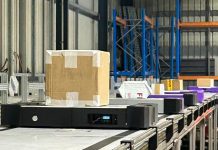
A new artificial intelligence (AI) system developed by researchers from Monash University and Charles Darwin University (CDU) has demonstrated a 91 per cent accuracy rate in identifying contaminated construction and demolition wood waste.
The study, published in the journal Resources, Conservation & Recycling, presents what the researchers describe as the first real-world image dataset of contaminated wood waste.
The project was led by Madini De Alwis, a PhD candidate at Monash University’s Department of Civil and Environmental Engineering, and Dr Milad Bazli from CDU, under the supervision of Associate Professor Mehrdad Arashpour, Head of Construction Engineering at Monash.
Contaminated wood, often tainted with paint, metals, chemicals, and other residues, poses a major challenge for recycling facilities. The difficulty of sorting such materials manually has meant much of it ends up in landfill.
The new AI system, powered by deep learning models including convolutional neural networks (CNNs) and Transformers, can automatically detect six types of contamination in wood using standard RGB images.
“This new system could be deployed via camera-enabled sorting lines, drones or handheld tools to support on-site decision-making,” said De Alwis, who curated the image dataset as part of the research.
The team’s work builds on existing computer vision techniques used in general waste streams, but applies them specifically to wood waste – an area previously underexplored.
“By fine-tuning state-of-the-art deep learning models, we showed that these tools can automatically recognise contamination types in wood,” said Dr Bazli.
“This opens the door to scalable, AI-driven solutions that support wood waste reuse, recycling and reclamation.”
According to Monash, wood is one of the largest components of construction waste globally, and much of it is recyclable if properly sorted.
By integrating AI with waste management systems, the researchers say the technology could significantly reduce the cost and complexity of processing construction waste.
“This is a practical, scalable solution for a global waste problem,” De Alwis added. “By enabling automated sorting, we’re giving recyclers and contractors a powerful tool to recover valuable resources and reduce landfill dependency.”
DOI: 10.1016/j.resconrec.2025.108278



















